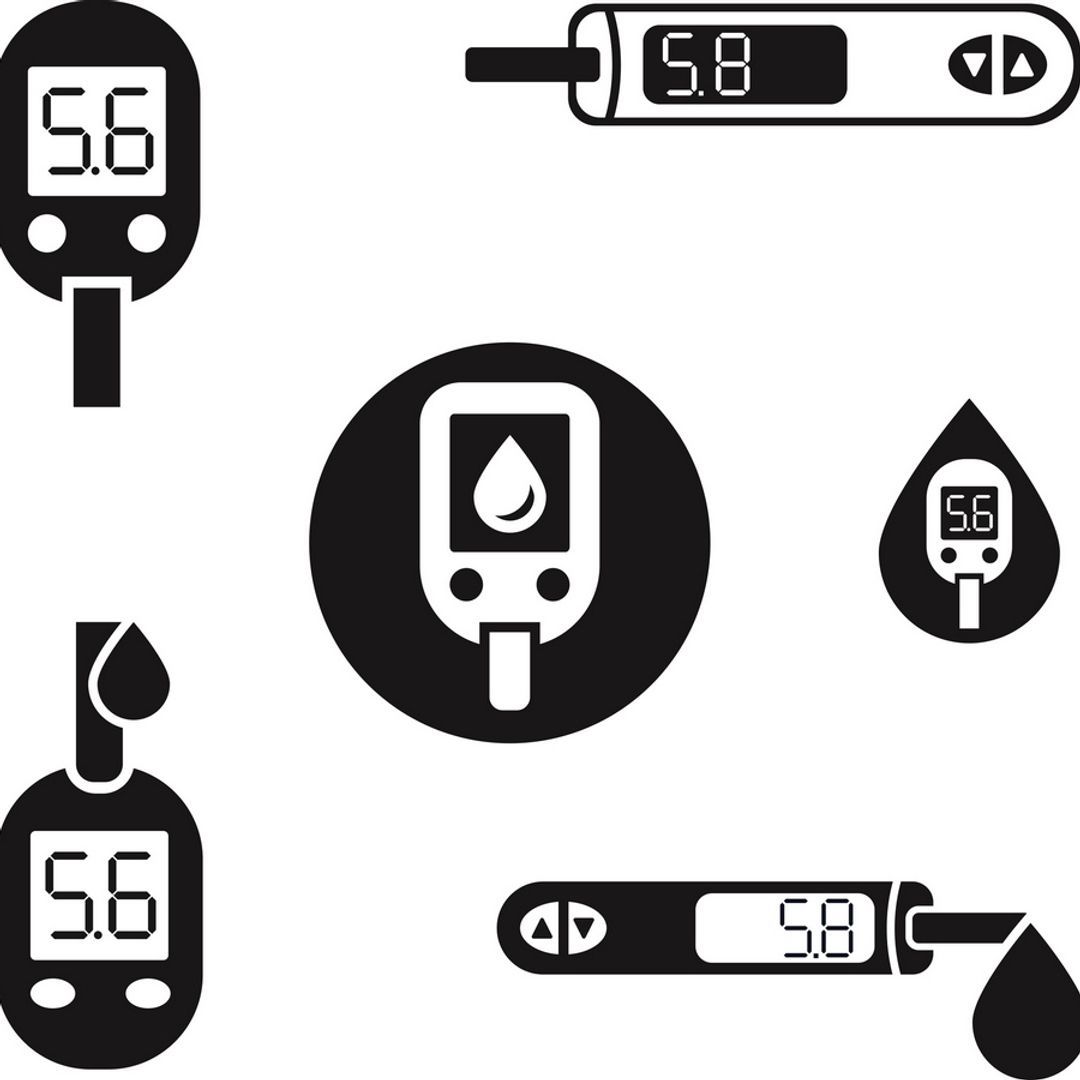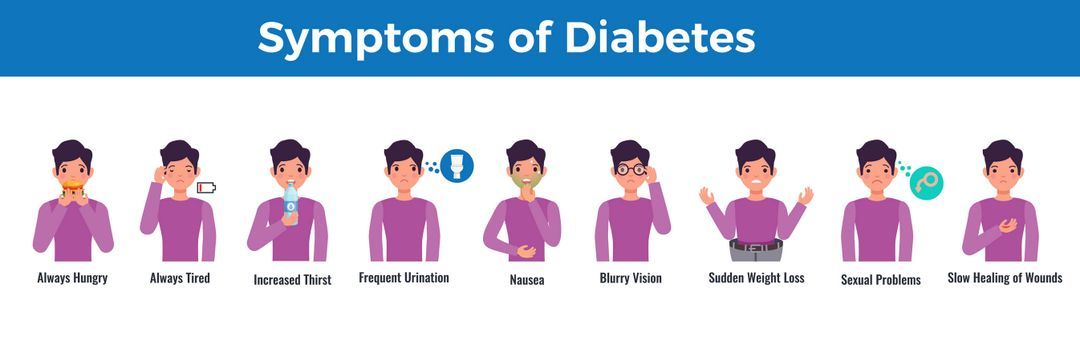Blood Test Kits For Diabetes Explained

A home diabetes test kit allows you to monitor your blood sugar levels and safeguard yourself from potentially severe health complications. This article takes an in-depth look at self-testing for diabetes with a blood test kit. Keep reading to learn more.
Diabetes is a chronic health condition characterised by too much glucose in the blood. Our body converts the food we eat into glucose (a type of sugar) as energy for cells. This process involves a hormone called insulin, which regulates the amount of glucose circulating in the blood. However, in people with type 1 or type 2 diabetes, their ability to produce or effectively use insulin is impaired, causing glucose levels to accumulate in the blood.
Diabetes puts people at a higher risk for heart disease, stroke, blindness, and nerve damage, and it is the leading cause of death worldwide. It is estimated that around 537 million people are currently living with the condition globally [1].
Moreover, prediabetes (the stage before diabetes) affects approximately 56 million people in the US and 7 million in the UK. Most people are unaware that they have the condition until later stages when they experience problematic symptoms.
A home diabetes test kit allows you to monitor your blood sugar levels and safeguard yourself from potentially severe health complications. This article takes an in-depth look at self-testing for diabetes with a blood test kit. Keep reading to learn more.
What Is An At-Home Diabetes Test?
 An at-home diabetes test, also known as an HbA1c test, measures a person’s average blood glucose levels over the past two to three months to help check for diabetes and prediabetes.
An at-home diabetes test, also known as an HbA1c test, measures a person’s average blood glucose levels over the past two to three months to help check for diabetes and prediabetes.
Such tests provide an accurate overall picture of how your body manages glucose, rather than blood sugar test kits which only provide limited information on your blood sugar levels in the moment.
A diabetes home testing kit analyses the amount of haemoglobin in the blood (red blood cells) with glucose attached to it. These blood proteins have a life span of approximately three months, and the glucose attaches to them throughout this duration. Depending on how much glucose has attached to the haemoglobin within this time frame, your blood will either return a high result (indicating a higher risk for diabetes) or a normal result.
A normal blood glucose level is 5.6% or below, while a score of 5.7% to 6.4% indicates prediabetes, and people with diabetes usually have a reading above 6.5%.
How Do Diabetes Self-Testing Kits Work?
 A home test for diabetes involves taking a finger-prick blood sample and either checking your results instantly at home or submitting it to an accredited laboratory for analysis. With the latter, results are typically available via phone, email, or a secure website within a few days of the lab receiving your sample.
A home test for diabetes involves taking a finger-prick blood sample and either checking your results instantly at home or submitting it to an accredited laboratory for analysis. With the latter, results are typically available via phone, email, or a secure website within a few days of the lab receiving your sample.
For at-home testing, you use a lancet to draw a few drops of blood from your finger and mix it with a diluent solution. You then deposit the sample into a cartridge and insert it into the testing machine. Results are usually available after five minutes.
If your sample returns an abnormal result, you will need to contact your doctor or healthcare provider for advice on what action to take next.
Blood glucose readings can fluctuate throughout the day, as well as with lifestyle changes, medications, or hormonal changes. A diabetes test will check the average of these readings over the last three months to provide a clear indication of how effective your blood sugar control has been over this time.
For instance, if your blood glucose levels were high last month but are at normal levels now, the test will provide an average score based on the total readings within the specified timeframe.
Why Is It Important To Check For Diabetes At Home?
It is important to get tested for diabetes if you’re at high risk for the condition. Routine testing can help detect prediabetes and empower you to make lifestyle changes to help delay or prevent type 2 diabetes.
If you already live with diabetes, getting tested at least twice a year is important to monitor your blood glucose levels and utilise treatment options to prevent health complications. More frequent measurements are recommended if you are altering your medication, have other health conditions, or are setting blood sugar targets as part of your diabetes management strategy.

Who Should Take A Home Diabetes Test?
Anyone who wants to understand their risk of diabetes should take a home diabetes test.
People over the age of 45 should get tested every three years if they have normal blood glucose levels and every one to two years if results indicate they have prediabetes.
Some people under the age of 45 may have a higher risk of developing diabetes because they:
- Are prediabetic
- Have a family history of diabetes
- Have cardiovascular conditions
- Lead a sedentary lifestyle
- Have gestational diabetes
- Have a higher risk of diabetes because of their ethnic origin
The main symptoms of diabetes include:
- Increased hunger
- Increased thirst
- Unintentional weight loss
- Frequent urination
- Blurry vision
- Fatigue
- Slow-healing wounds
- Decreased sex drive
- Erectile dysfunction (in men)
- Poor muscle strength (in men)
- Yeast infections (in women)
- Urinary tract infections (in women)
- Dry, itchy skin
Where Can I Get A Diabetes Test?
You can take a diabetes test at your doctor’s office or accredited laboratory, or you can use a self-testing kit in the convenience and privacy of your home.
 You can order at-home versions of the diabetes blood test from a private online retailer. Your doctor can advise whether at-home testing is the right option for you and recommend specific brands based on your circumstances.
You can order at-home versions of the diabetes blood test from a private online retailer. Your doctor can advise whether at-home testing is the right option for you and recommend specific brands based on your circumstances.
Factors to consider when purchasing an at-home diabetes test kit include laboratory accreditation (if your sample requires a lab analysis), cost, data protection, speed of results, and medical support.
Popular brands of diabetes tests include the LetsGetChecked test, which offers nurse consultation services as part of the package, and the DTI Laboratories test kit, which is FDA-approved and offers round-the-clock support to users. Additionally, the EverlyWell test kit is an affordable option highly recommended by customers and offers additional discounts for subscription members.
Take Control Of Your Health With GlycanAge
While monitoring your glucose levels with a diabetes blood test kit is crucial to managing your type 1 or type 2 diabetes, it provides limited information on the state of your overall health. In order to gain a better understanding of how well your body is ageing, consider using the GlycanAge testing kit.
Learning your biological age (the age of your cells and tissues) compared to your chronological age (the number of years you’ve been alive) is the key to increasing your health span.
A GlycanAge test is a biological age test that effectively assesses the extent of damage accumulated in the cells and tissues of the body over time to accurately predict the onset of diseases and illnesses before they occur. Such meaningful insights can empower you to implement the necessary changes to your lifestyle and adopt habits to improve your wellness and longevity and prevent disease.
Once you receive your home testing kit, all you need to do is a simple finger prick test, send the results back to our lab, and leave the rest to us. After 3-5 weeks of rigorous analysis to obtain the most accurate readings, your results will be ready.
A single test (£289) is best if you’re starting your wellness journey and want to discover your biological age. Two tests (£492) are highly recommended to track your progress as you work towards healthy ageing. Alternatively, a custom plan is best suited to those interested in making long-term improvements to their health, with additional discounts and tailored support.
Whichever package you choose, you can take advantage of complimentary 1-1 consultations with our team of scientists and qualified healthcare professionals to help you understand your results and take proactive measures in reversing your biological age.
Improve your health span with GlycanAge and order your home testing kit today.
Reference
- https://www.statista.com/topics/1723/diabetes/#topicHeader__wrapper




